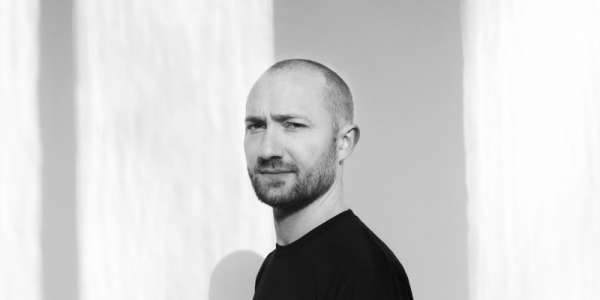This new album is Kalkbrenner’s second release on his own label, after many years on the iconic BPitch control imprint. I ask how he’s finding the freedom, and he tells me that everything is a lot easier. “Right now, I don’t have to negotiate with anyone,” he says. “I can do things my way – I can decide how things should look, how they should sound, how much they should cost and when they should be available. That brings way fewer problems than before.” BPitch control, founded by the legendary Ellen Allien, has launched the career of techno artists from Modeselektor to Apparat, and I’m curious to know if things between Kalkbrenner and the label are still friendly. “I was with them for a number of years, but I grew out of it and wanted to go out on my own,” he says. “They very happily accepted that. There is no bad blood between us at all, and it’s always good to see them.”
Kalkbrenner is a long-time resident of Berlin, and still lives and works there. Unlike many of the city’s artist residents, however, he is not overly sentimental about the place he calls home. “The city certainly inspires me,” he says, “but I would like to think that my inspiration is not just limited to the city, however. I think I could be inspired by any place I was living.” With that in mind, however, Kalkbrenner has no plans to leave Berlin any time soon. “I do love it here,” he says. “It’s something I can’t verbalise, but when you walk through the city in autumn, when it’s foggy and the street lights are coming on, there’s a certain something in the air that I find very inspiring. I have a studio a little bit outside the Berlin city centre. I like to go there in the late afternoon to the early evening to work, and there’s really nothing like it.”
Guten Tag is a stark and beautiful album – like all of Kalkbrenner’s work, it does a lot with a little, and finds tiny moments of euphoria amid the samples and loops. The album is composed entirely of instrumentals, and I ask Kalkbrener why he doesn’t feel the need to collaborate with any vocalists. “I have quite a few things to say, about my life and about the state of the world,” he explains, “but I’d rather say those things with the music, rather than on top of the music in words. The composition is my way of expressing myself, I suppose.” When listening to the album, it’s clear that you’re hearing a master craftsman at work. “When I made this album, I knew exactly what I wanted to do,” he explains. “The only problem I have is knowing when a track is ready. You can spend an infinite amount of time playing with it, tweaking it. You have to know when it’s finished, and that’s something you learn over time.”
Kalkbrenner is due to return to Australia soon for another round of shows, and I ask him what exactly we can expect. “Since the last time I came to Australia, the visuals and the crew have changed a bit, but from where I’m standing, the show is still fundamentally the same,” he says. “I’m really looking forward to coming to Australia again,” he continues. “People will get to hear some of my new tracks, and also, it’s been so fucking cold in Germany lately, I can’t wait to escape!”

